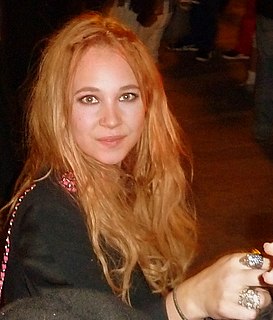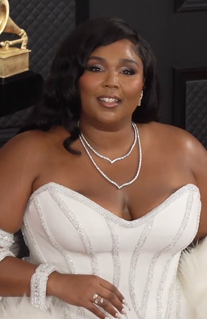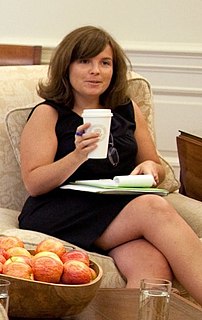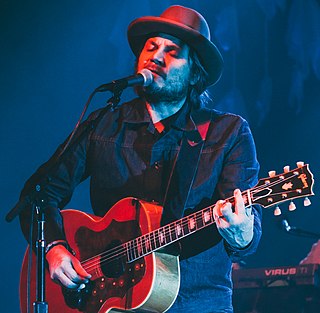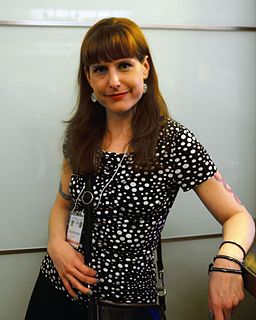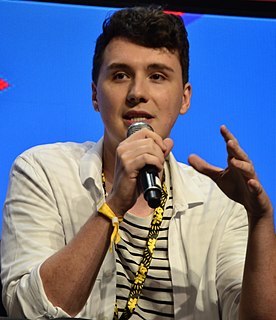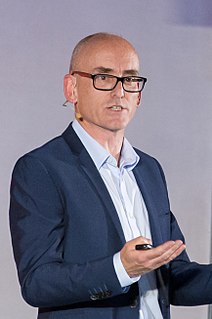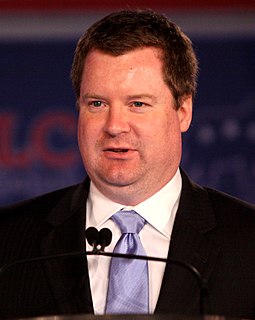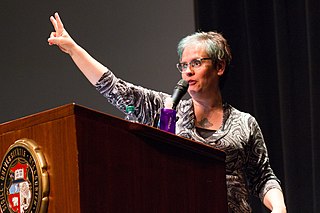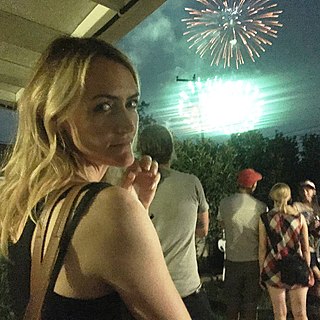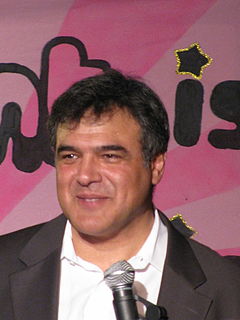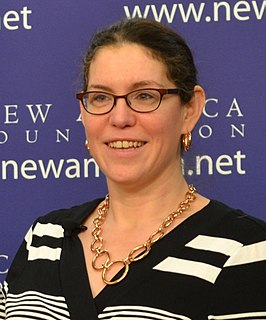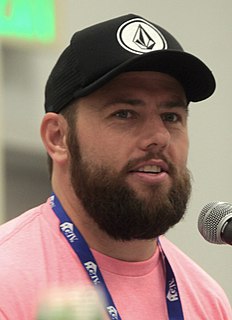A Quote by Julie Zeilinger
Now, I think a lot of people look around and feel that we're relatively equal with men. In fact, women are now the majority of college graduates, we have role models like Hillary Clinton to look up to - it seems like the world is completely open to us and we can accomplish anything. I think feminists are often disdained today because we're seen as complaining about a problem people think no longer exists. I also think young women shy away from calling themselves feminists because many haven't been educated about it or exposed to it. They don't know enough about it to identify with it.
Quote Topics
About
Accomplish
Also
Anything
Around
Away
Because
Been
Calling
Clinton
College
College Graduates
Complaining
Educated
Enough
Equal
Exists
Exposed
Fact
Feel
Feminists
Graduates
Hillary
Hillary Clinton
Identify
In Fact
Know
Like
Longer
Look
Look Up
Lot
Majority
Many
Men
Models
Now
Often
Open
People
Problem
Relatively
Role
Role Model
Role Models
Seems
Seen
Shy
Themselves
Think
Today
Up
Us
Women
Women Are
World
Young
Young Women
Related Quotes
It's always been important to me to be very upfront with people about the fact that I do identify as a feminist because it's an opportunity to expose people to and educated them about the movement. Young women don't identify as feminist is because they don't know any feminists and don't have a comprehensive understanding of what it is, I gave them example and an opportunity to ask about it. And once they saw that I wasn't the embodiment of the negative feminist stereotype - that I was a normal teen girl just like them - I think they became more open to learning about what feminism really is.
We've been growing our readership every month, and we're kind of like, where are they all coming from? This is wonderful! And I think one of the best surprises was that you hear so often that young women don't care about feminism, that young women don't identify as feminists. But really, the majority of our readers are young women. So to see so many young people kind of get involved and really take to Feministing.com was a really exciting thing.
I get very frustrated when I hear women saying, "Oh, feminism is passé," because I think feminism means empowerment. Men can be feminists, too! Many men are feminists. We need feminism. It's not against men; it's about the empowerment of women. It's the respect of women - giving women equal rights, the same opportunities.
It turns out that a lot of women just have a problem with women in power. You know, this whole sisterhood, this whole let's go march for women's rights and, you know, just constantly talking about what women look like or what they wear, or making fun of their choices or presuming that they're not as powerful as the men around. This presumptive negativity about women in power I think is very unfortunate, because let's just try to access that and have a conversation about it, rather than a confrontation about it.
I think there are so many unmaiden roles for women. I've been lucky enough to play girls with lots of different attitudes about sex. There's a couple other movies at Sundance that also show sex in a different way. That's exciting. I actually don't think women are being pigeonholed right now, and I like that. It's showing that men and women - when it comes down to it, we're animals, aren't we? I know how my next-door neighbors feel about it, and I hope they're enjoying it.
There's really educated women out there who are feminists and they have read up on their stuff. They can talk to me right now, and school me on some things I've never known, and that's amazing, you are a scholar, you are wise, you are educated. But the unfortunate thing is also the reality, and the fact is, millions of people might not even know who these educated feminists are - hundreds will, thousands maybe.
Sex workers are the last women police stand in to protect. Sex workers are the last people that room is made for in many ways. You get a different kind of feminism if you put people at the margins at the center. It's a recently resonant lesson, but black feminists have been saying this for decades. Now when I talk to people engaged in sex workers' rights advocacy and people who identify as intersectional feminists, this is the air they breathe. We can't just make feminism about improving the lives of all women. Because there is no such thing as all women and universal female experience.
I think feminism has always been global. I think there's feminism everywhere throughout the world. I think, though, for Western feminism and for American feminism, it not so surprisingly continues to center Western feminism and American feminism. And I think the biggest hurdle American feminists have in terms of taking a more global approach is that too often when you hear American feminists talk about international feminism or women in other countries, it kind of goes along with this condescending point of view like we have to save the women of such-and-such country; we have to help them.
I think that if you look at all of the books that have ever been written about people working in the White House, they're sort of the opposite of my book. And I think that so many people want to write a book that sort of memorializes their place in history. And I wanted to write something for all of the women who are like me. I grew up in upstate New York, I graduated high school with 70 other people and didn't ever know that anything like this would have really been an option for me. So I wanted other young women — and men — to know that just being you is plenty.
I think the idea that feminism is dead is dangerous because it leads women and men to believe that (1) they don't have to do anything; the work has been done, and that everything is okay now; and (2) it leaves them kind of alone, I think, in a struggle, and that's something I've seen a lot when I go to colleges and I speak to young women.
I think the biggest hurdle American feminists have in terms of taking a more global approach is that too often when you hear American feminists talk about international feminism or women in other countries, it kind of goes along with this condescending point of view like we have to save the women of such-and-such country; we have to help them.
To be honest, I’m more concerned with living my life than writing about my life. I feel like that’s really the main thing I know now that I didn’t know when I was younger — and that is that you have to have a life to write about one. If you’re more worried about having experiences so you can write about them, I think you’re kinda being ridiculous, and I think a lot of young people look at it like that.
When I grew up, feminism wasn’t something that was really talked about. There’s a really negative stereotype about feminism in the media. That really plays badly for young women understanding the movement. Maybe people don’t want to identify themselves as feminists because of the label. But people need to understand what feminism means and educate themselves before they reject it.




